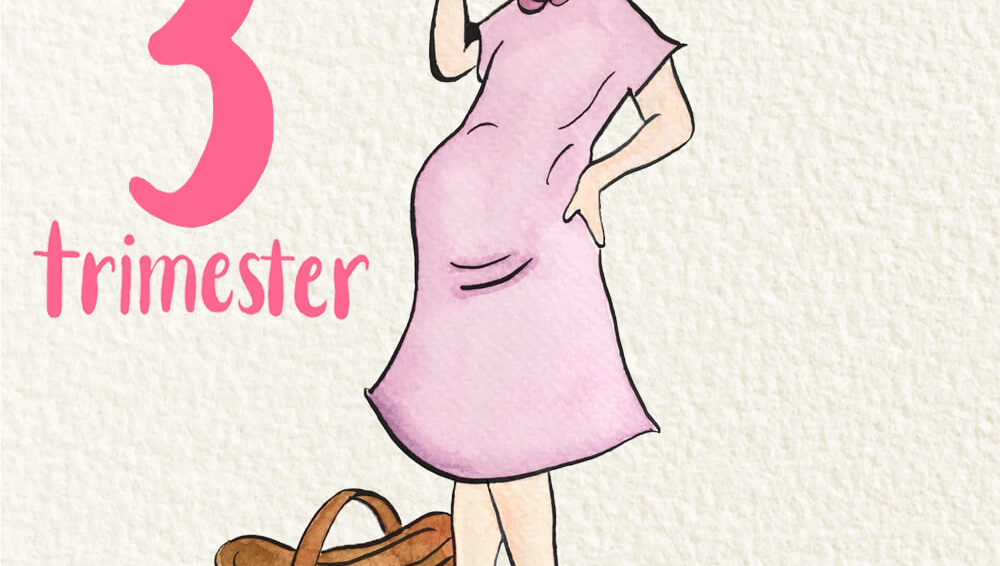Welcome to the third trimester!
Updates

Welcome to the final period of the journey. During this last phase, you may experience some new symptoms.
The symptoms could include poor sleep, shortness of breath, varicose veins, hemorrhoids, and urinary incontinence.
Your Child’s development
Your little one continues to grow and will start developing fat under the skin. The eyelids are no longer fused, which means Your Child can open and close them regularly. Your little one develops the ability to see and hear and will react to stimuli, such as the lights and sounds from the outside world. Your Child will even be able to recognize your voice. This makes it a great time to start reading stories to your baby — an activity you can continue until the teenage years. Almost all children love it. It helps them learn your language and gain new vocabulary. It also sparks their imagination probably more than anything. Your Child continues to suck the thumb or make sucking movements with the mouth, so the little one will have already learned how to nurse at birth.
Sometime during the 9th month of pregnancy, Your Child will probably settle into the head down position, and “drop” more deeply into your pelvis in preparation for birth.
Your development
You’ll probably be experiencing physical discomfort due to Your Child’s increasing size and weight. You might find breathing difficult and go to the bathroom even more often. Once the baby “drops,” breathing will be a little easier, though you may feel more pressure on your lower abdomen and pelvis.
You might experience a range of other third-trimester pregnancy symptoms, such as leg cramps, feeling unstable on your feet, backaches, fatigue, wrist pain, and itchy skin. Many pregnant women also get stretch marks around their belly, breasts, and thighs, though these generally fade with time. Many moms-to-be notice swelling (also called edema) in their ankles and feet because of extra fluids in their bodies. Elevating your legs whenever you can, will help relieve this swelling.
What to do
Get your hospital bag ready as Your Child could decide to come out earlier than expected. This is also a great time to hunt for a pediatrician.
Become informed about the signs of labor so you’ll recognize when it’s happening and when it’s time to go to the hospital. Being well informed about labor, delivery, and baby care will help decrease your anxieties and prepare you for the events ahead. It’s also a good idea to take childbirth classes. You’ll learn relaxation techniques and stretching exercises that will help you remain calm and focused.
Get at least seven hours of sleep each night and nap during the day so you approach childbirth as rested as possible. Use pillows to support your upper leg and your back, and sleep on your side for better comfort.
Slow down, and make fewer demands on yourself. Don’t be ashamed to ask for help anytime you need it. Also, get as much rest as you need.
Verified:
Dr. Wanwadee Sapmee Panyakat (OB-GYN), license no. 41208 (27 June 2020)



